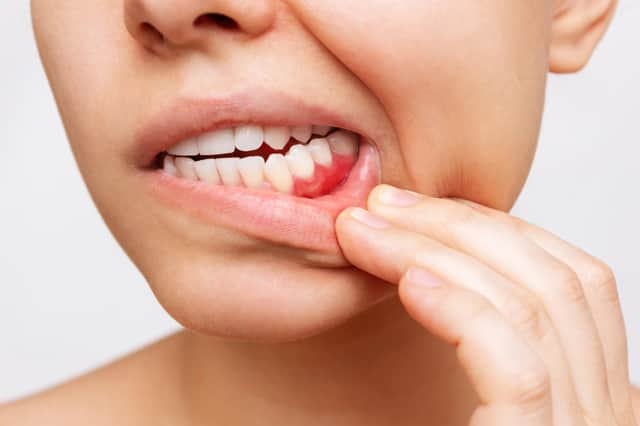Dr's Casebook: Protect your gums to protect your health


Dr Keith Souter writes: Gum disease is extremely common and affects up to three out of every four adults in the UK. Contrary to most people’s belief, it is gum disease, not tooth decay that is the biggest cause of tooth loss. More that half of all teenagers have some form of gum disease, and over 50 per cent of all cases of gum disease occur in smokers.
Effectively, the presence of gum disease means that someone is suffering from a chronic low-grade infection. In that sense, the body’s defence mechanisms have to work all the time. Surprisingly, many people just live around it. The commonest sign that it is present is soreness in the gums and bleeding when brushing the teeth.
Advertisement
Hide AdAdvertisement
Hide AdGum disease can exacerbate a whole array of medical problems. It is suspected that it does so when bacteria are carried in the bloodstream from the mouth to other parts of the body, causing inflammation. Yet another suspected mechanism is that oral infections trigger the immune system, which produces inflammation elsewhere in the body.
Research suggests that there is an increased risk of heart disease and strokes in people with gum disease, and that the risk increases with the severity of the infection. In addition, it has been known for decades that people who have heart valve problems have to be especially careful, since bacteria can settle there and affect the heart.
Orthopaedic surgery has made incredible advances, so that may of the body’s joints can be replaced. Research from the USA suggests that some joint replacements fail because gum disease affects the immune system and contributes to the body response to reject the implanted joint.
The main defence against gum disease is good oral hygiene, with regular brushing and flossing, and avoidance of sweets, sugary drinks and snacks. Regular dental inspections are of course essential.